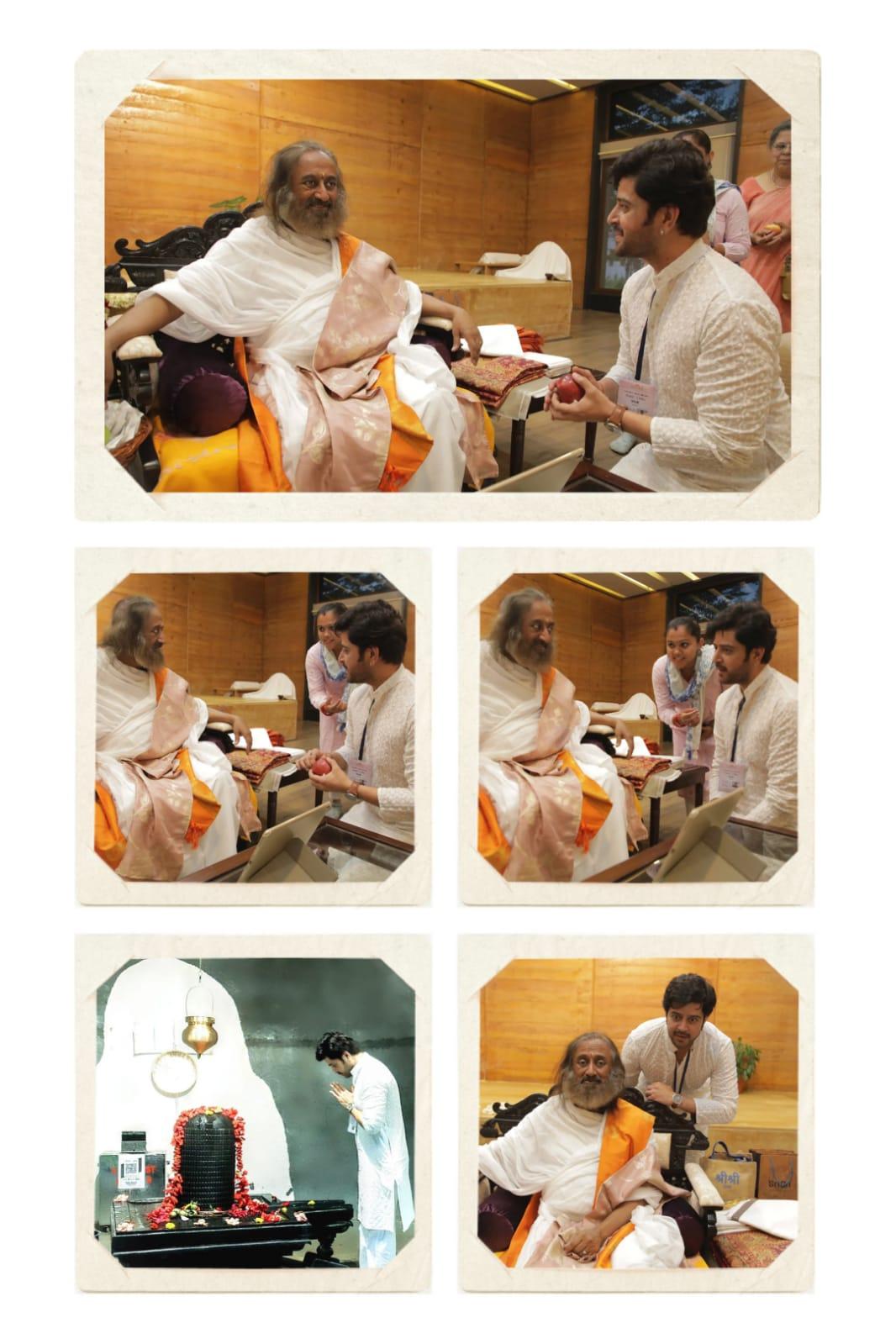- My Story
- “What am I looking for?”
- Meditation is a practice that has been used by many cultures for centuries. It is a way to focus your mind and quiet your thoughts so that you can think more clearly. There are many different types of meditation, and you can try any of them that feels comfortable to you. You can meditate by focusing your attention on your breath, on a mantra, on a picture, or on your thoughts. Whatever method you choose, be sure to practice regularly so that you can develop good habits for thinking clearly and for calmness.
- Excuses for not Meditating
- When was the last time you did anything to nourish your mind?
- How to start meditating in just 5 minutes a day?
- If you’re like most people, you probably think that you don’t have time to meditate. You might even believe that meditation is only for “spiritual” people or people who have hours to spend sitting on a cushion.
- The good news is that meditation is for everyone, and it doesn’t have to take hours out of your day. In fact, you can start reaping the benefits of meditation in just 5 minutes a day
- 1. Find a comfortable place to sit or lie down.
- 2. Close your eyes and take a few deep breaths.
- 3. Focus your attention on your breath. Simply observe the sensation of the breath as it enters and leaves your nostrils.
- 4. If your mind wanders, gently bring it back to the breath.
- 1. Set aside some time each day for your practice. Even just 5-10 minutes can be beneficial.
- 2. Find a comfortable place to sit or lie down. You may want to use a pillow or blanket to support your back.
- 3. Close your eyes and focus on your breath. Notice the sensation of the air moving in and out of your body.
- 4. If your mind begins to wander, simply redirect your attention back to your breath.
- 5. When you’re finished, sit for a few moments and notice how you feel.
- How to keep up with your meditation practice?
- But how does meditation achieve all of these amazing health benefits?
- How Meditation Can Help You Sleep Better?
- How Meditation Can Help You De-Stress?
- How to Meditate for Better Mental Health?
- 1. Reducing stress and anxiety
- 2. Improving focus and concentration
- 3. Promoting better sleep
My Story
Before we get into analyzing and consuming the literature that is already available to us on various platforms. I’d like to take this opportunity to share my experiences with meditation. Like everyone else from the 90s generation, I grew up in a rather competitive environment. India was just experiencing the internet revolution and we were yet to be impacted by the social media storm. To add to this rapidly changing atmosphere, which can play havoc with any young impressionable mind, I chose to make a career in the creative field. Any profession other than a doctor or an engineer was like jeopardizing your own future. However, as a young confident man, I took the leap of faith, and what happened after that is not a secret.
Coming to the present day, where I have spent twenty years in the career of my choice, in the city of my choice with the people I love and choose to associate with, there is still a huge void within. The pursuit of happiness still haunts me and this led me to explore the answers to the most common question –
“What am I looking for?”
The simplest question of all time is probably the most difficult when it appears in front of you and this is how my journey of introspection began which started with the basic act of picking up a self-help book ( The Power of Your Subconscious Mind by Joseph Murphy) which led me to finally get deep down into quantum physics, pineal gland, the different states of the mind, studying and following various gurus, spiritual leaders & speakers and lots more. This is an unending journey and I am enjoying every bit of it. At this point, I feel I have traveled far enough to share my experiences for the benefit of the readers.
Right then, this is the answer to the most commonly asked question.
What is Meditation?
I realized after a lot of research that the simple act of being present in the present is meditation. We are invariably always, either in the past or the future. We are never committed to what we are doing at any given point in time. So the simplest one-word explanation of meditation is concentration.

Meditation is a practice that has been used by many cultures for centuries. It is a way to focus your mind and quiet your thoughts so that you can think more clearly. There are many different types of meditation, and you can try any of them that feels comfortable to you. You can meditate by focusing your attention on your breath, on a mantra, on a picture, or on your thoughts. Whatever method you choose, be sure to practice regularly so that you can develop good habits for thinking clearly and for calmness.
Why should we meditate?
Excuses for not Meditating
- Most people say that they fall asleep.
- They don’t have time.
- They find it a waste of time.
- They can’t sit still in a place for even 5 minutes.
- And the list of excuses goes on.
My simple query in response to all these questions is – Do you have a bath daily, eat daily, wear freshly washed clothes daily, eat good food daily, and go to your job daily? And all the other activities that you do on a daily basis. All these activities are directed at maintaining a healthy body.
But we never pause to think about the brain, the mind, the spirit, and the soul….which controls the body.
When was the last time you did anything to nourish your mind?
Very correctly stated by Sister B.K.Shivani of the Brahamakumaris is the fact that meditation is not a choice in today’s times, it is mandatory.
How to Meditate to Improve Your Mood and Anxiety?
Meditation has been practiced for centuries, but it’s only recently that it’s been gaining popularity in the Western world as a means to improve overall health. While there are many different ways to meditate, the goal is always the same: to focus and quiet the mind in order to achieve a state of inner peace.
The benefits of meditation are well-documented and include reducing stress, anxiety, and depression, improving sleep quality, and reducing inflammation. Meditation has also been shown to improve heart health, and can even help to lower blood pressure.
If you’re new to meditation, there are a few things you should know before you get started. First, it’s important to find a quiet, comfortable place to sit or lie down. You may want to close your eyes and focus on your breath, or you may prefer to focus on a mantra or word that you repeat to yourself.
There’s no right or wrong way to meditate, so just do what feels comfortable for you.
How to start meditating in just 5 minutes a day?
If you’re like most people, you probably think that you don’t have time to meditate. You might even believe that meditation is only for “spiritual” people or people who have hours to spend sitting on a cushion.
The good news is that meditation is for everyone, and it doesn’t have to take hours out of your day. In fact, you can start reaping the benefits of meditation in just 5 minutes a day
Here’s how to Meditate:
1. Find a comfortable place to sit or lie down.
2. Close your eyes and take a few deep breaths.
3. Focus your attention on your breath. Simply observe the sensation of the breath as it enters and leaves your nostrils.
4. If your mind wanders, gently bring it back to the breath.
To help you meditate better, please have a look at the following products
Meditation Tips for Beginners
Assuming you would like tips for beginning a meditation practice:
1. Set aside some time each day for your practice. Even just 5-10 minutes can be beneficial.
2. Find a comfortable place to sit or lie down. You may want to use a pillow or blanket to support your back.
3. Close your eyes and focus on your breath. Notice the sensation of the air moving in and out of your body.
4. If your mind begins to wander, simply redirect your attention back to your breath.
5. When you’re finished, sit for a few moments and notice how you feel.
How to keep up with your meditation practice?
When you first start out with meditation, it can be difficult to keep up with the practice. You may find yourself forgetting to meditate or skipping a day here and there. However, there are a few things you can do to make it easier to stick with your meditation practice.
One thing you can do is set a regular time for meditation. If you meditate at the same time each day, it will become a part of your daily routine and you’ll be less likely to forget or skip it.
Another thing you can do is find a meditation buddy. Having someone to meditate with can help keep you accountable and on track.
Finally, don’t be too hard on yourself if you miss a day or two. Just get back into the practice and don’t let it get too far from you. With a little effort, you can easily keep up with your meditation practice.
The benefits of meditation
Some of the most well-known benefits of meditation include
- Reducing stress
- Improving sleep, and
- Reducing pain.
Meditation has also been shown
- To improve heart health,
- Boost the immune system, and
- Even slow the aging process.
But how does meditation achieve all of these amazing health benefits?
When you meditate, your body enters a state of deep relaxation. This allows your mind and body to de-stress and heal. As your body relaxes, your heart rate and blood pressure lower, and your breathing becomes slower and deeper. This deep state of relaxation activates your body’s natural healing processes, which can help to reduce pain and improve sleep.
How Meditation Can Help You Sleep Better?
If you find it difficult to fall asleep at night, or if you wake up frequently during the night, you might want to try meditation. Meditation can help you sleep better by quieting your mind and relaxing your body.
There are many different ways to meditate, but one simple way to get started is to focus on your breath. Sit or lie down in a comfortable position, close your eyes, and simply observe your breath as it moves in and out. If your mind starts to wander, simply bring your attention back to your breath.
You can also try a guided meditation specifically designed to help you sleep. There are many different types of guided meditations available online or on apps. Find one that resonates with you and give it a try the next time you have trouble sleeping.
If you find that meditation helps you sleep better, you can make it part of your nightly routine. Just a few minutes of meditation before bed can make a big difference in your sleep quality.
How Meditation Can Help You De-Stress?
If you’re looking for a way to de-stress, you might want to try meditation. Meditation has been shown to be an effective way to reduce stress and anxiety. In fact, it’s even been shown to be more effective than medications for some people.
There are many different ways to meditate, so you can find a method that works for you. Once you find a method you like, you can practice it anywhere, at any time. You don’t need any special equipment or clothing. Just find a comfortable place to sit or lie down, and focus on your breath.
If you’re new to meditation, it can be helpful to find a guided meditation. There are many free ones available online or you can buy CDs or downloads. Once you get the hang of it, you can meditate without guidance.
Meditation is a simple practice, but it can have a powerful effect on your stress levels. Give it a try and see for yourself.
How to Meditate for Better Mental Health?
There are many different ways to meditate, so it is important to find a method that works best for you. Some people prefer to sit or lie down in a comfortable position, while others prefer to walk or move around. There are also many different guided meditation techniques that can be used.
The most important thing is to be patient and to keep at it. Meditation is a skill that takes time and practice to master. But once you get the hang of it, you will be amazed at the difference it can make in your mental health.
How can meditation help you?
1. Reducing stress and anxiety
One of the most common reasons people start meditating is to help reduce stress and anxiety. If you’re constantly feeling overwhelmed or anxious, meditation can help you to take a step back and clear your mind. This can lead to a calmer, more relaxed state of being overall.
2. Improving focus and concentration
Another benefit of meditation is that it can help to improve your focus and concentration. If you find it difficult to focus on tasks or you’re easily distracted, regular meditation can help you to train your mind to be more present.
3. Promoting better sleep
If you struggle with insomnia or poor sleep quality, meditation could be helpful. This practice can promote relaxation and help to clear the clutter of unwanted thoughts that dwell and manifest in your mind while you are sleeping.
Vije BhatiaFinally, if you have still not found your reason for mediation, take this one, I am sure like most of us you surely do want to know what is going to happen in the future. I am happy to share that meditation enhances your focus, gives you clarity, and massively increases your intuitive abilities, so much that you can sense what is coming your way., Now I’m sure this is reason enough to give it a shot.
Happy mediating!!!






June 30, 2023 at 4:32 am
Hello. Great job. I did not imagine this. This is a excellent story. Thanks!
June 30, 2023 at 7:51 am
F*ckin¦ tremendous issues here. I am very happy to see your article. Thanks a lot and i am having a look ahead to contact you. Will you kindly drop me a e-mail?
July 19, 2023 at 7:24 pm
Hi, Neat post. There is a problem together with your web site in web explorer, would test thisK IE nonetheless is the market leader and a good component of other folks will miss your wonderful writing because of this problem.
July 20, 2023 at 2:06 am
I just could not go away your web site before suggesting that I extremely enjoyed the standard info an individual supply in your guests? Is going to be again frequently in order to inspect new posts.
July 20, 2023 at 4:56 pm
Please let me know if you’re looking for a article author for your weblog. You have some really great articles and I think I would be a good asset. If you ever want to take some of the load off, I’d really like to write some material for your blog in exchange for a link back to mine. Please send me an email if interested. Regards!
July 21, 2023 at 1:41 am
It’s actually a nice and useful piece of information. I am happy that you shared this helpful info with us. Please keep us informed like this. Thanks for sharing.
July 22, 2023 at 8:21 am
you are really a good webmaster. The web site loading speed is amazing. It sort of feels that you are doing any distinctive trick. Also, The contents are masterpiece. you’ve done a magnificent job in this matter!
July 23, 2023 at 6:24 pm
Merely wanna say that this is very useful, Thanks for taking your time to write this.
August 15, 2023 at 10:15 am
Thanks for the auspicious writeup. It in reality was once a enjoyment account it. Glance advanced to far added agreeable from you! By the way, how could we keep up a correspondence?
August 17, 2023 at 4:49 pm
Hello! I’ve been following your weblog for some time now and finally got the bravery to go ahead and give you a shout out from Houston Texas! Just wanted to tell you keep up the good job!
August 17, 2023 at 5:04 pm
I’m in awe of the author’s ability to make complicated concepts approachable to readers of all backgrounds. This article is a testament to his expertise and dedication to providing valuable insights. Thank you, author, for creating such an captivating and insightful piece. It has been an incredible joy to read!